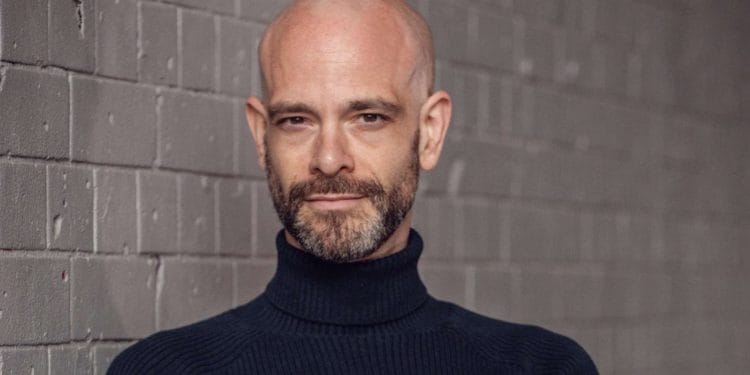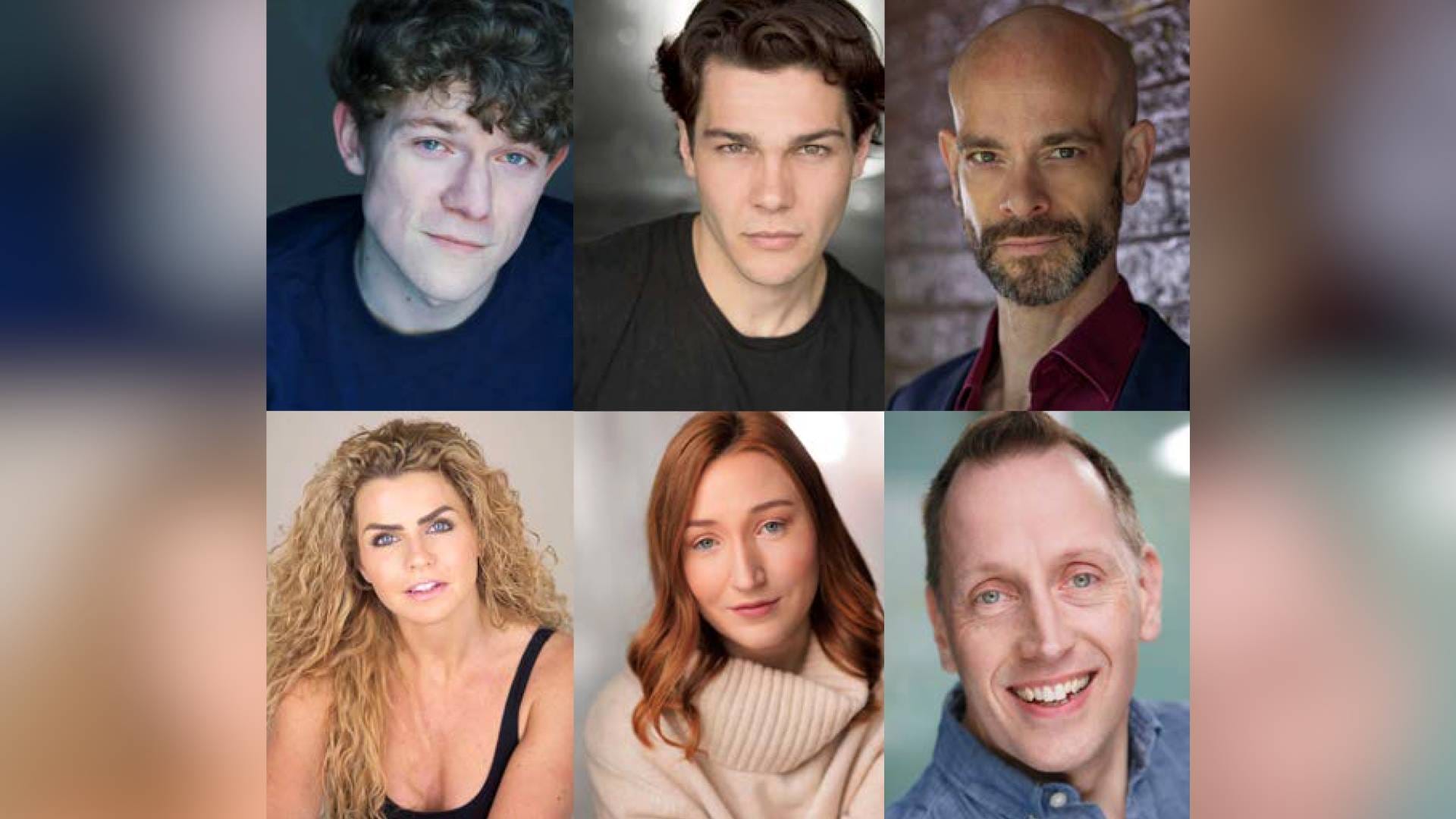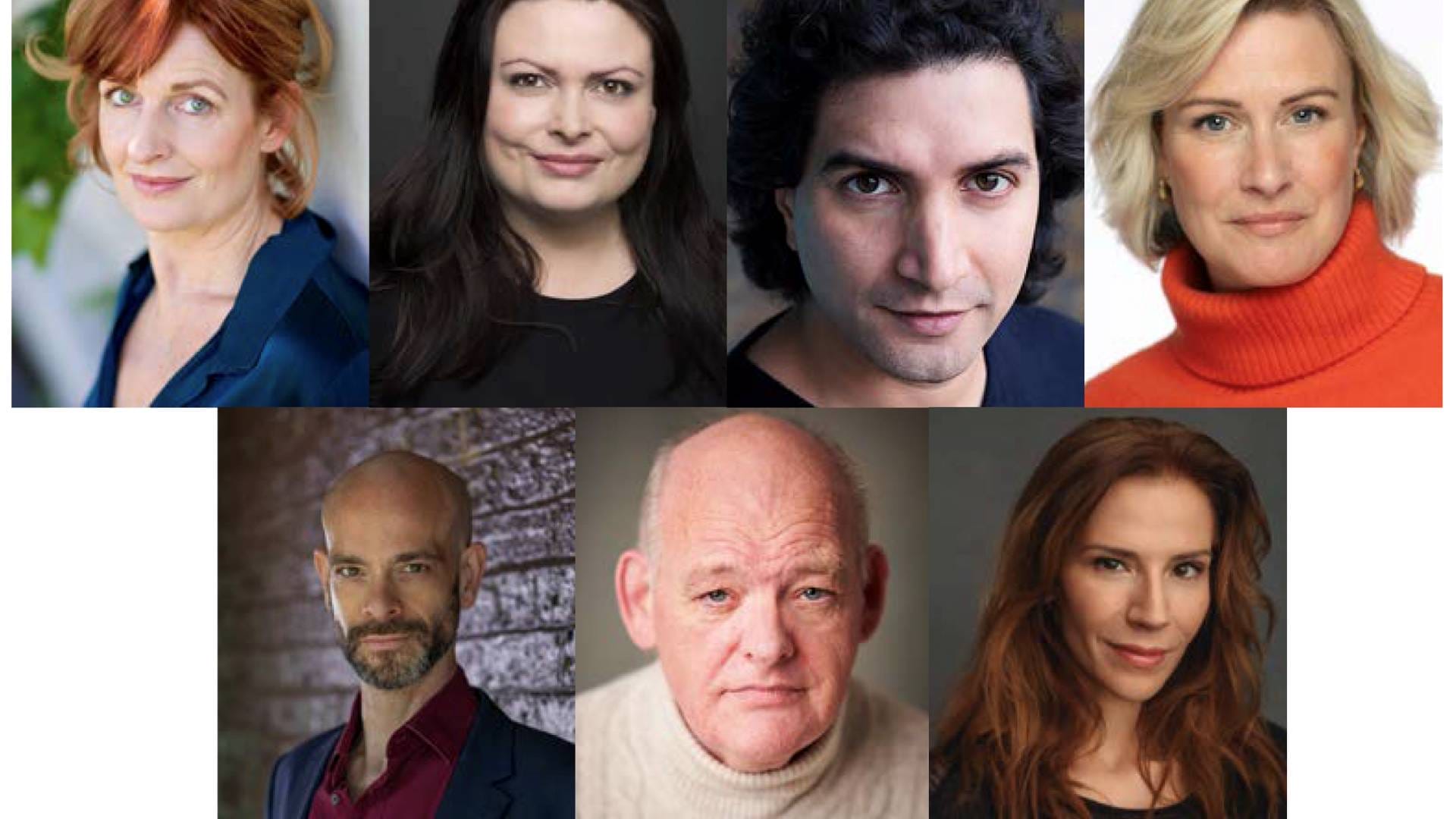Peter Rae is the writer of An Absolute Farce of a Murder Mystery, playing at The Drayton Arms Theatre.
Join the Usual Tired Old Tropes, ahem, Dynamic and Electrifying List of Suspects: the Monstrous Patriarch, the Drunken Son; the Maid with a Secret; the Butler with a Past, the Celebrated Psychic, the Longful Daughter; the Ostensibly Objective Rake; a Ghost-like Thing: all collide and commune in a raucous take on the stylings of Agatha Christie – with added Ghost. Or is there?”
An Absolute Farce of a Murder Mystery is at The Drayton Arms Theatre until 11th March 2023.
You’re bringing An Absolute Farce of a Murder Mystery to the Drayton Arms, what can you tell us about the show?
It’s a reverent and irreverent take on the Whodunit genre. It then evolves into a run-around farce, with elements of ghost story for those who enjoy a good jump-scare! Helen Bang (my director and wife) and I are obsessed with murder mysteries, and so I decided I’d try a little spin on the genre. It begins as a straightforward Whodunit, though since audiences are so sophisticated these days, we’re attempting to stay one step ahead and nothing is quite what it seems.
What inspired you to write the play?
Helen and I run Canonbie Productions – set up initially to keep ourselves creatively engaged and to make web series’ for YouTube, we have since branched out into (utterly unsolicited) TV pilots, an episodic Comedy-Crime narrative podcast (Margate Murder Mystery) and last year we shot our first feature film.
Since films can take a while to edit Helen suggested I write a play to keep the creative juices flowing. Her exact words were: “WRITE ME A PLAY!” The genre choice was easy – and with the success of such brilliant modern and meta-productions as The Play That Goes Wrong, Austentatious, Pride & Prejudice* (*sort of) et al, I decided there was a space in the theatrical landscape for a show that combines the best of British – Farce, Ghost Story and Whodunit.
Why do you think these kind of murder mysteries are so popular with audiences?
I had the great joy of working with Joe Harmston – founder & artistic director of The Agatha Christie Theatre Company – on a thriller last year. His approach is not so much WHOdunit, but WHYdunit.
As an audience we try and understand the psychology of the characters and understand their motivations – so it makes us active students of human nature. Which is gratifyingly participatory as well hugely enjoyable. I suspect it is also something to do with the Whodunit being a thoroughly British institution.
From Conan Doyle, Agatha Christie and Dorothy L. Sayers through to the marvel of TV that is Death in Paradise, we just feel at home there. My elevator pitch to myself was ‘Whodunit meets Farce with a hint of Ghosts’.
Farce is fundamentally a British genre and I wanted to pay homage to The Woman in Black as well, so these are interwoven. I think all three of these represent the British sense of humour, as well as our neuroses, foibles and idiosyncrasies. We feel at home with these types of plays, so I threw them all into the mix!
Tell us a little more about how you embrace the genre through comedy?
I started with the technical requirements of the plot – I had to devise a murder mystery, a farce and a ghost story and then interweave those into a hopefully coherent play. Once that was done I took the recognisable character tropes and had them behave somewhat irreverently within the reverent confines of the setting, which brings forth the comedy.
We also sporadically and unapologetically ‘break the fourth wall’. Audiences enjoy seeing actors have fun on stage, usually when things go wrong – I wanted to take that and incorporate it into the DNA of the play in order to make the audience complicit in the joke. We’re all sharing the same space – let’s embrace that.
And what’s it like working alongside the rest of the cast as an actor, when you’re also the writer?
Working alongside this cast is a dream. I wrote each part specifically for the actor concerned – and where they were not the first choice for whatever reason, I rewrote for the next person. This means that I am guided in the writing by the voice of the actors concerned, and once we get into the room and they bring my words to glorious life, it’s just heaven.
Helen and I run Canonbie Productions as a sort of creative commune, so we have an built up an ensemble of actors and technical creatives who return to work with us time and time again. Ros Blessed for example has worked with us on every single project we’ve put together. So there is a wonderful feeling of family. Also there is something uniquely special about working with my wife who is not only a tremendous actress but a very skilled director. T
he one aspect of writing-performing I still can’t work out is why it is just as hard, if not harder, to learn my own lines as anybody else’s. It just feels wrong!
What would you say to anyone thinking of booking to see An Absolute Farce of a Murder Mystery?
Do!

















